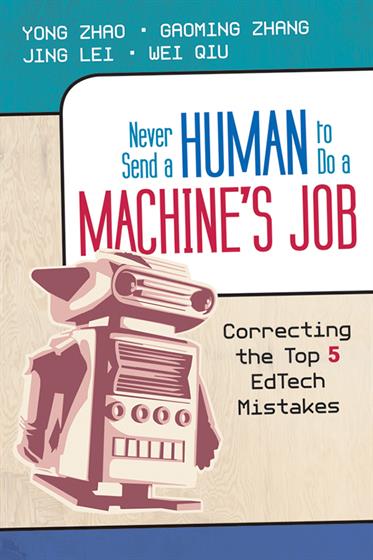Hands-on, Practical Guidance for Educators
From math,
literacy, science, equity, multilingual learners, and SEL, to assessment, school counseling,
and education leadership, our books are research-based and authored by experts
on topics most relevant to what educators are facing today.

Never Send a Human to Do a Machine's Job
Correcting the Top 5 EdTech Mistakes
Reimagine and rethink classroom technology to empower students while you enhance instructional depth. Optimize its use and hone critical thinking skills.
Product Details
- Grade Level: PreK-12
- ISBN: 9781452282572
- Published By: Corwin
- Year: 2015
- Page Count: 144
- Publication date: July 08, 2015
Review Copies
Review copies may be requested by individuals planning to purchase 10 or more copies for a team or considering a book for adoption in a higher ed course. Request review copy





